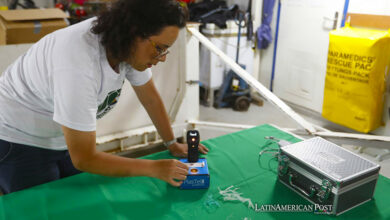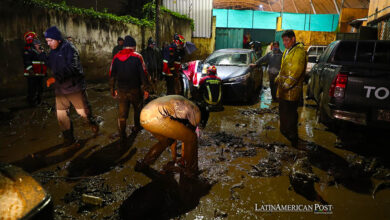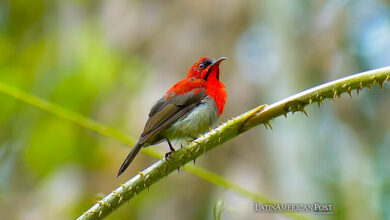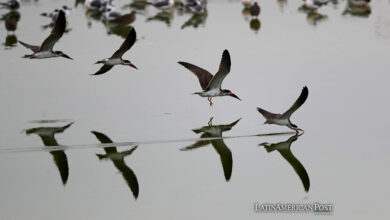Young Women Lead Climate Action in the Caribbean
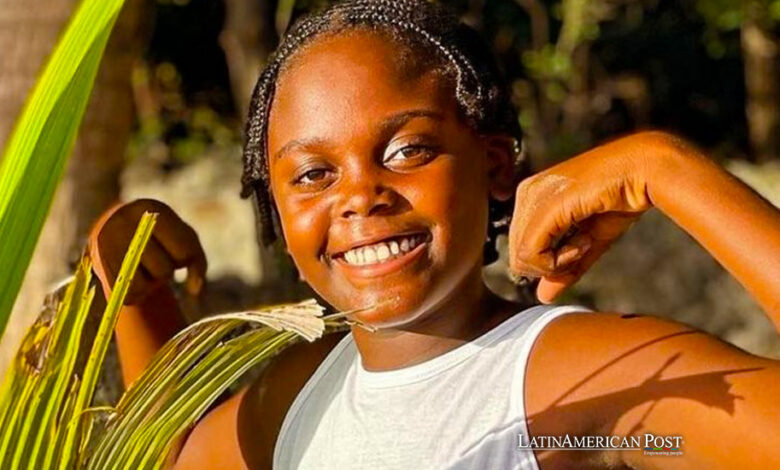
In Antigua, an island where climate change manifests as a daily challenge, young women like 11-year-old Kih’Nyiah McKay are stepping up as coastal stewards, empowered by a local initiative transforming regional environmental activism.
In the heart of the Caribbean, the small island of Antigua is becoming a big player in the fight against climate change, thanks to a groundbreaking initiative that’s empowering young women and girls to take the lead in preserving their environment. Amidst the backdrop of receding beaches and intensifying hurricanes, these young activists are not just participants in the environmental movement; they are emerging as front-line warriors.
Kih’Nyiah McKay, just 11 years old, embodies the new wave of young environmentalists taking action. She understands the stakes: fewer trees mean less oxygen, and discarded trash harms the marine life that sustains her island’s ecological health. Her resolve is striking, “Young people need to save the Earth,” she declares, showcasing a maturity that belies her youth.
The urgency of her mission is underscored by the harsh realities of Caribbean climate. Antigua, like its neighbors, faces an uphill battle against nature’s wrath, driven by global warming. The increasingly brutal summers and destructive weather patterns make daily life a testament to resilience and adaptability.
Empowering Young Women Through Environmental Stewardship
The local NGO Adopt-a-Coastline is at the forefront of this transformation. It has trained over 60 girls and young women, including Kih’Nyiah, as coastal stewards. These stewards undertake critical tasks like planting indigenous trees to combat coastal erosion, protecting endangered turtle nesting sites, and managing beach waste with strategically placed bins.
This initiative recently gained international recognition, securing a $100,000 grant from the United Nations’ Global Environment Facility (GEF). The funds are earmarked for expanding the project to other Caribbean islands, spreading the successful model of Antigua’s eco-stewardship to Nevis, Carriacou, and Barbuda later this year.
Kat Byles, executive director of Adopt-a-Coastline, explains that a significant part of the project’s mission is to amplify the voices of women and girls in a region where traditional gender roles often limit their opportunities. The program not only equips them with practical skills, such as ecological data analysis, but also encourages them to aspire to leadership roles within their communities and beyond.
The impact of these young environmentalists is palpable. Ryona Shaw-Joseph, a school principal in Antigua, actively supports the initiative by involving her students in beach clean-ups and ecological education. “We need to teach children to take care of what we have, so it can be sustained for the future,” she asserts, highlighting the importance of instilling environmental consciousness from a young age.
Kaiesha Joseph, a 24-year-old youth parliamentarian from Antigua, is another formidable advocate for the cause. She dreams not just of governmental service but of leading the nation as its first female prime minister. For now, she channels her energies into supporting Adopt-a-Coastline, challenging gender stereotypes and encouraging her peers to engage in governance and environmental conservation.
A Cultural Shift in Environmental Management
The involvement of young women like Kaiesha in these initiatives is crucial as Antigua prepares to host the UN’s fourth small island developing states conference. The event will focus on the unique challenges small islands face due to climate change and their efforts toward sustainable development. Input from individuals who live these realities daily will be vital in crafting meaningful global responses.
Moreover, the initiative helps these young stewards generate income by teaching them to create and sell eco-friendly crafts like jewelry, bird boxes, and benches made from marine debris. These activities not only foster a sustainable economy but also reinforce the message that environmental conservation can coexist with economic development.
As the Caribbean continues to navigate the treacherous waters of climate change, the role of initiatives like Adopt-a-Coastline becomes increasingly significant. By empowering young women to lead the charge, these programs are changing the face of environmental activism in the region.
Also read: Peru’s Bold Initiatives to Protect Its Biodiverse Landscapes
The story of these young Caribbean women is a beacon of hope and a call to action. It exemplifies how empowering young individuals, particularly women, in environmental stewardship can catalyze significant community and global changes. As they grow into their roles as leaders and custodians of their environment, the hope is that their voices will resonate not just on their islands but across the world, inspiring further action to combat the climate crisis that affects us all.

